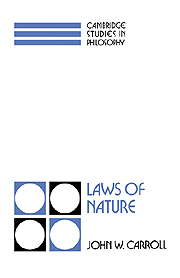Chapter 4 - A realist perspective
Published online by Cambridge University Press: 12 January 2010
Summary
The empiricism of, say, Locke or Hume states that every idea either originates in our phenomenal experience or is exhausted by component ideas thus originating. One descendant of this tenet is the logical positivists' criterion of cognitive significance: A sentence is cognitively meaningful only if it is verifiable. At the hands of A. J. Ayer (1936), Carl Hempel (1971), and other disciples of the Vienna Circle, this criterion was quietly transformed into a principle that makes the essence of cognitive meaning translatability into an empirical language. The surviving core of empiricism, what I have referred to as the empiricist framework, is roughly this:
If there is some expression of English, call it ‘F’, such that there is no necessarily true completion of ‘x is F if and only if… ’ that uses only suitably wholesome terms, then ‘F’ must fail to describe reality.
What counts as suitably wholesome varies from one expression to the next; the analyzing vocabulary might have to include only nonmental physical terms if ‘F’ is a mental predicate, or only nonethical natural terms if ‘F’ is an ethical predicate.
Given this background, it is easy to see why someone convinced by the arguments in Chapters 1, 2, and 3 may feel forced to adopt some sort of antirealism about law. After all, Chapter 1 shows that the concepts appropriate for a comforting definition of ‘law of nature’ are those without nomic commitments.
- Type
- Chapter
- Information
- Laws of Nature , pp. 86 - 116Publisher: Cambridge University PressPrint publication year: 1994



